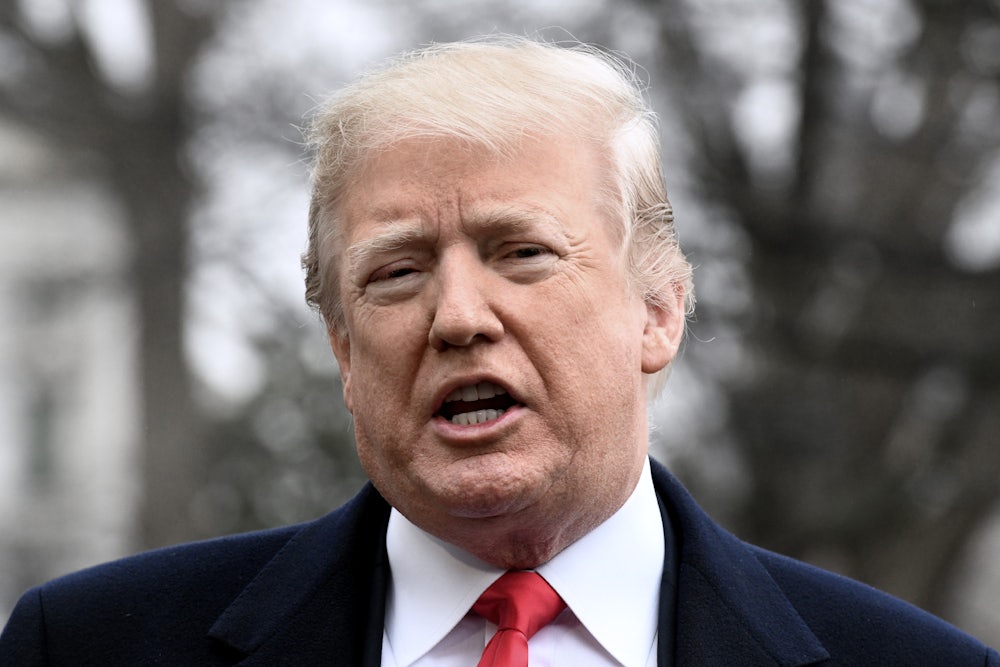On Thursday, the Associated Press reported that the sheriff’s deputy who was on duty at Marjory Stoneman Douglass High School in Parkland, Florida, had resigned after it was revealed that he never entered the school during the Valentine’s Day massacre that left 17 dead. Instead, he apparently took up a position outside the school. Broward County Sheriff Scott Israel told reporters on Thursday that the deputy should have “[w]ent in. Addressed the killer. Killed the killer.” The deputy, Scot Peterson, resigned after being suspended without pay.
A day later, Donald Trump used the deputy’s inaction to push the case for more guns in schools. Speaking to reporters before heading to CPAC, Trump said Peterson was either a “coward” or “didn’t react properly under pressure.” Trump described Peterson’s failure to act as “a real shot to the police department” and said it “could have been prevented” if he had entered the school. “He certainly did a poor job, there’s no question about that.”
Peterson’s role has become something of an obsession for gun advocates. If Peterson had entered the school, they say, the massacre could have been prevented or the death toll could have been dramatically reduced. That’s possible! But the Peterson incident also makes the opposite case—that even people who are trained to respond to massacres react in unpredictable ways when those massacres are actually underway.
